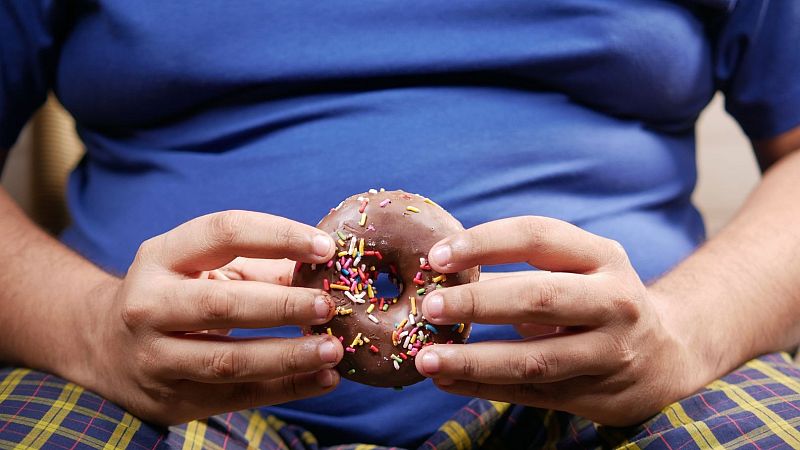Emotional overeaters may see fewer benefits from weight loss drugs like Ozempic, study finds

People who overeat to help manage their emotions may not benefit as much from blockbuster weight loss drugs, a small study suggests.
Popular medications such as Ozempic, Wegovy, and Mounjaro belong to a class of drugs known as glucagon-like peptide-1 (GLP-1) receptor agonists, which help people lose weight by mimicking a hormone that reduces their appetite.
But not everyone benefits equally, prompting scientists in Japan to spend a year monitoring 92 diabetes patients to better understand why some people lose more weight on GLP-1 drugs and others do not.
They found that the people who overeat because of the sight or smell of food respond well to the drugs – but that people who overeat for emotional reasons are less likely to see benefits.
The findings suggest that doctors should try to understand their patients’ eating behaviours before prescribing weight loss drugs, the researchers said.
“Individuals with prominent emotional eating tendencies may require additional behavioural or psychological support,” Dr Takehiro Kato, one of the study’s authors and a clinical lecturer at Gifu University in Japan, said in a statement.
The study was published in the journal Frontiers in Clinical Diabetes and Healthcare.
Over the course of a year, Kato’s team collected data on people’s diets, blood markers, and body weight and composition.
They also asked about the participants’ relationship with food, allowing them to decipher between three distinct eating patterns: eating to help manage negative emotions, eating because food looks good rather than to quell hunger, and controlling their diet to spur weight loss, which can lead to disordered eating.
Most of the participants lost a significant amount of weight and saw improvements in their cholesterol levels in their first year taking GLP-1 drugs – but there were differences based on their eating habits.
At the three-month mark, people were more likely to control their eating, and less likely to eat because food looked tasty or to use food to help manage their emotions. But by the 12-month mark, emotional and restrictive eating habits had rebounded.
“One possible explanation is that emotional eating is more strongly influenced by psychological factors which may not be directly addressed by GLP-1 receptor agonist therapy,” Kato said.
People who tended to overeat because food looked appetising saw the most sustained weight loss and better blood sugar levels by the end of the year, the study found.
The researchers said studies with more people would be needed to confirm the link between eating habits and the success of weight loss drugs.
“While our study suggests a potential association between external eating behaviour and treatment response to GLP-1 receptor agonists, these findings remain preliminary,” said Dr Daisuke Yabe, one of the study’s authors and a professor at Kyoto University.
“Further evidence is necessary before they can be implemented in clinical practice,” Yabe added.
Today

